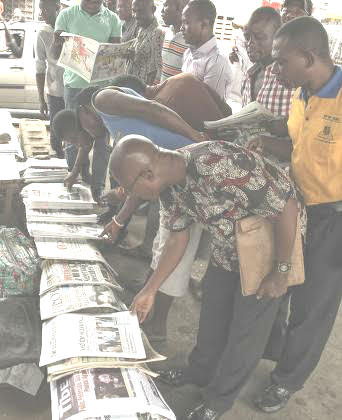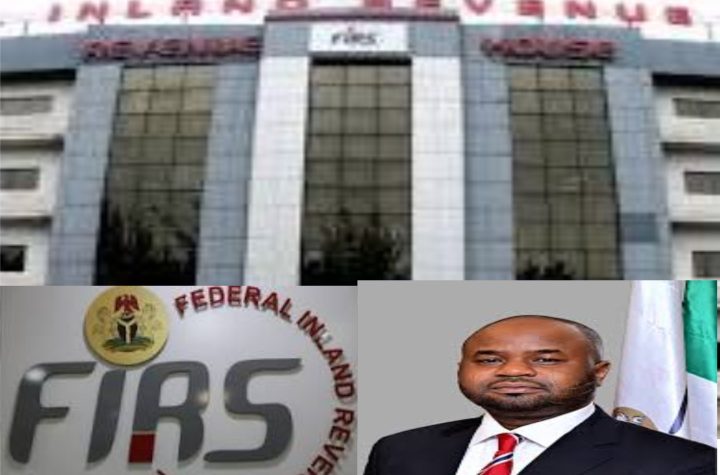
By Dr Muda Yusuf
The steady but marginal deceleration in headline inflation over the past few months is noteworthy. However, inflationary pressures remain a key concern in the Nigerian economy, both for businesses and the citizens.
According to the National Bureau of Statistics [NBS], headline inflation decelerated by 0.38% in September from 17.01% in August to 16.63%. However, on a month-on-month basis, there was a further increase of 1.15% between August and September.
Meanwhile, food inflation, which is the biggest worry for the poor, decelerated by 0.73% from 20.3% in August to 19.57% in September. But on a month-on-month basis, there was an increase of 1.26% between August and September.
The Core inflation, which related largely to non-agricultural products, maintained an upward trend. It accelerated by 13.74% in September as against 13.41% in August, an increase of 1.24%. This was largely a reflection of the impact of the further depreciation in the naira exchange rate.
IMPLICATIONS
Although the economy witnessed an incremental deceleration in inflation over the last couple of months, high inflationary pressures remain a major concern to stakeholders in the Nigeria economy. Some of the implications are as follows.:
·Escalation of production and operating costs for businesses, leading to erosion of profit margins, drop in sales, decline in turnover and weak manufacturing capacity utilization,
·High food prices which impacts adversely on citizens welfare and aggravates poverty.
·Weak purchasing power which poses significant risk to business sustainability.
·Price volatility which undermines investors confidence.
MAJOR DRIVERS OF INFLATION AND COST IN THE ECONOMY
·Exchange rate depreciation has a significant impact on headline inflation, especially the core sub index.
·Liquidity challenges in the foreign exchange market impacting adversely on manufacturing output.
·Security concerns affecting agricultural output.
·Climate change effects on agricultural production. There are increasing cases of flooding and desertification in many parts of the country. These have negative impact on agricultural output.
·Structural constraints affecting productivity in the agricultural value chain.
·High transportation costs affecting distribution costs across the country. This is also reflected in the huge differential between farm gate prices and market prices.
·Monetization of fiscal deficit [CBN financing of deficit] is highly inflationary because of the liquidity injection effects on the economy.
This becomes worrisome when statutory thresholds are exceeded.
·High transactions costs at the nations ports increases production and operating costs of businesses.
·High energy cost.
·High import duty on intermediate goods and raw materials.
RECOMMENDATION TO TAME INFLATION
To tame the current inflationary pressure, governemnt need to fix the following:
·Reform the foreign exchange market to stabilize the exchange rate and reduce volatility.
·Address forex liquidity issues through appropriate policy measures.
·Address the security concerns causing disruption to agricultural activities.
·Address the challenge of high transportation cost.
·Reduce fiscal deficit monetization to minimize incidence of high-powered money in the economy.
·Manage climate change consequences to reduce flooding and desertification.
·Ensure the restoration of normalcy and good order at the nations ports to reduce transaction costs.
·Reduce import duty on intermediate products and raw materials for industries to reduce production costs, especially in the light of the sharp depreciation in the exchange rate.
Address concerns around high energy cost.
·Create an investment friendly tax environment.
By Full text of CPPE comments on September inflation report
The steady but marginal deceleration in headline inflation over the past few months is noteworthy. However, inflationary pressures remain a key concern in the Nigerian economy, both for businesses and the citizens.
According to the National Bureau of Statistics [NBS], headline inflation decelerated by 0.38% in September from 17.01% in August to 16.63%. However, on a month-on-month basis, there was a further increase of 1.15% between August and September.
Meanwhile, food inflation, which is the biggest worry for the poor, decelerated by 0.73% from 20.3% in August to 19.57% in September. But on a month-on-month basis, there was an increase of 1.26% between August and September.
The Core inflation, which related largely to non-agricultural products, maintained an upward trend. It accelerated by 13.74% in September as against 13.41% in August, an increase of 1.24%. This was largely a reflection of the impact of the further depreciation in the naira exchange rate.
IMPLICATIONS
Although the economy witnessed an incremental deceleration in inflation over the last couple of months, high inflationary pressures remain a major concern to stakeholders in the Nigeria economy. Some of the implications are as follows.:
· Escalation of production and operating costs for businesses, leading to erosion of profit margins, drop in sales, decline in turnover and weak manufacturing capacity utilization,
· High food prices which impacts adversely on citizens welfare and aggravates poverty.
· Weak purchasing power which poses significant risk to business sustainability.
· Price volatility which undermines investors confidence.
MAJOR DRIVERS OF INFLATION AND COST IN THE ECONOMY
· Exchange rate depreciation has a significant impact on headline inflation, especially the core sub index.
· Liquidity challenges in the foreign exchange market impacting adversely on manufacturing output.
· Security concerns affecting agricultural output.
· Climate change effects on agricultural production. There are increasing cases of flooding and desertification in many parts of the country. These have negative impact on agricultural output.
· Structural constraints affecting productivity in the agricultural value chain.
· High transportation costs affecting distribution costs across the country. This is also reflected in the huge differential between farm gate prices and market prices.
· Monetization of fiscal deficit [CBN financing of deficit] is highly inflationary because of the liquidity injection effects on the economy.
This becomes worrisome when statutory thresholds are exceeded.
· High transactions costs at the nations ports increases production and operating costs of businesses.
· High energy cost.
· High import duty on intermediate goods and raw materials.
RECOMMENDATION TO TAME INFLATION
To tame the current inflationary pressure, governemnt need to fix the following:
· Reform the foreign exchange market to stabilize the exchange rate and reduce volatility.
· Address forex liquidity issues through appropriate policy measures.
· Address the security concerns causing disruption to agricultural activities.
· Address the challenge of high transportation cost.
· Reduce fiscal deficit monetization to minimize incidence of high-powered money in the economy.
· Manage climate change consequences to reduce flooding and desertification.
· Ensure the restoration of normalcy and good order at the nations ports to reduce transaction costs.
· Reduce import duty on intermediate products and raw materials for industries to reduce production costs, especially in the light of the sharp depreciation in the exchange rate.
· Address concerns around high energy cost.
· Create an investment friendly tax environment.
By Dr Muda Yusuf, Economist/CEO, Centre for the promotion of private enterprise (CPPE). He was former Director General, LCCI
Dr Muda Yusuf, Economist/CEO, Centre for the promotion of private enterprise (CPPE). He was former Director General, LCCI










More Stories
FIRS expresses readiness to host National Conference on Illicit Financial flows, to boost revenue protection
Access Bank installed 974 solar-powered ATMs, Highlights Leadership at Climate Governance Initiative Launch in LBS, Lagos, Nigeria
Oriental News Nigeria, sets for 4th Summit, as former Minister, Prof. Bart Nnaji expresses his willingness to Chair the 2025 Summit